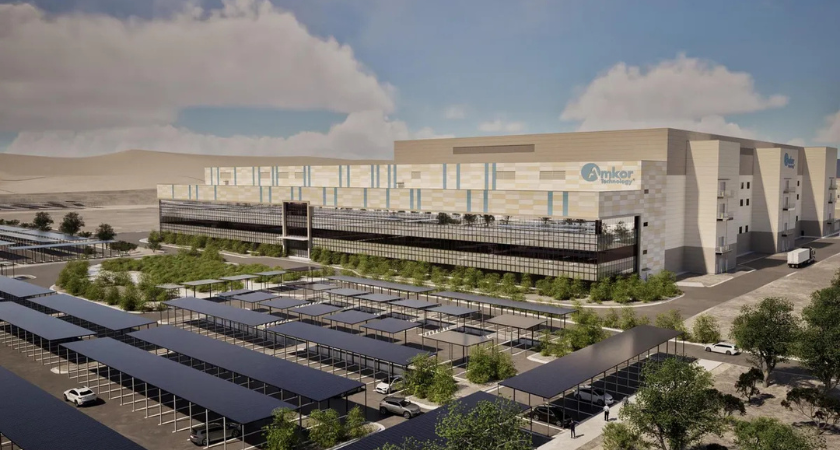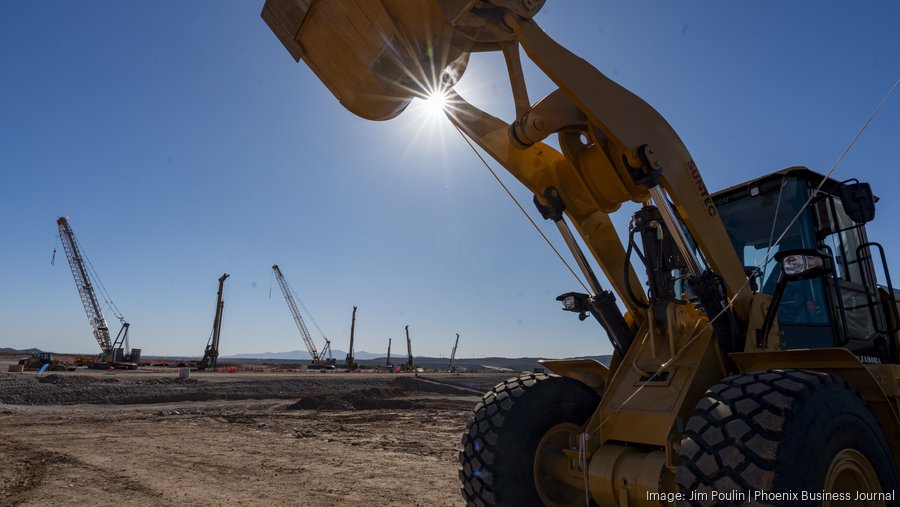
Amkor, the Tempe-based semiconductor firm, has officially broken ground on a $7 billion advanced packaging and testing campus in Peoria, Arizona, marking one of the largest private manufacturing investments in the state’s history. The move reflects both escalating demand from major tech clients and growing federal momentum to secure domestic chip production.
.avif)
The investment is a dramatic expansion from the company’s original $2 billion commitment, ballooning by $5 billion after Amkor adopted a broader project scope and secured significant CHIPS Act funding, according to a company news release.
“Arizona offers the right mix of talent, infrastructure, and industry presence, and we’re proud to deepen our roots here,” said Giel Rutten, Amkor’s president and CEO.
A Bigger Site, Bigger Vision
Originally slated for a 56-acre parcel within the Five North mixed-use development at Vistancia, the facility will now rise on a 104-acre site inside the Peoria Innovation Core, a growing tech hub in the region. The relocation came after a land parcel swap to allow for additional cleanroom space and a second greenfield facility, dramatically expanding the campus footprint.
Once both development phases are finished, the project will include:
Construction on the first manufacturing building is expected to wrap up by mid-2027, with production beginning in early 2028.
Funding for the project comes from a mix of state incentives, local government support, the Advanced Manufacturing Investment Tax Credit, and roughly $407 million in federal CHIPS Act funding, according to an Amkor 10-Q filing for Q2 2025.
Arizona has emerged as a central battleground in the U.S. bid to onshore semiconductor manufacturing, now hosting major projects from:

The groundbreaking also aligns with growing geopolitical pressure. In August, President Donald Trump announced plans to impose 100% tariffs on semiconductor imports, signaling a harsh pivot toward domestic self-reliance.
According to the Observatory of Economic Complexity, the U.S. imported $22.6 billion worth of semiconductors in 2024, with Vietnam exporting $5.6 billion, while Thailand and Malaysia each provided over $3 billion.
Amkor’s expansion serves both as economic insurance and strategic positioning — especially as companies like Apple and Nvidia seek to diversify away from Asian suppliers.
Industry analysts say this move could further accelerate supply chain clustering in Arizona, potentially drawing materials suppliers, logistics firms, and specialized engineering services to support the new ecosystem.
With the shovel now in the ground, Arizona is doubling down on its bid to become “America’s Silicon Desert.”
Originally reported by Matthew Thibault in Construction Dive.